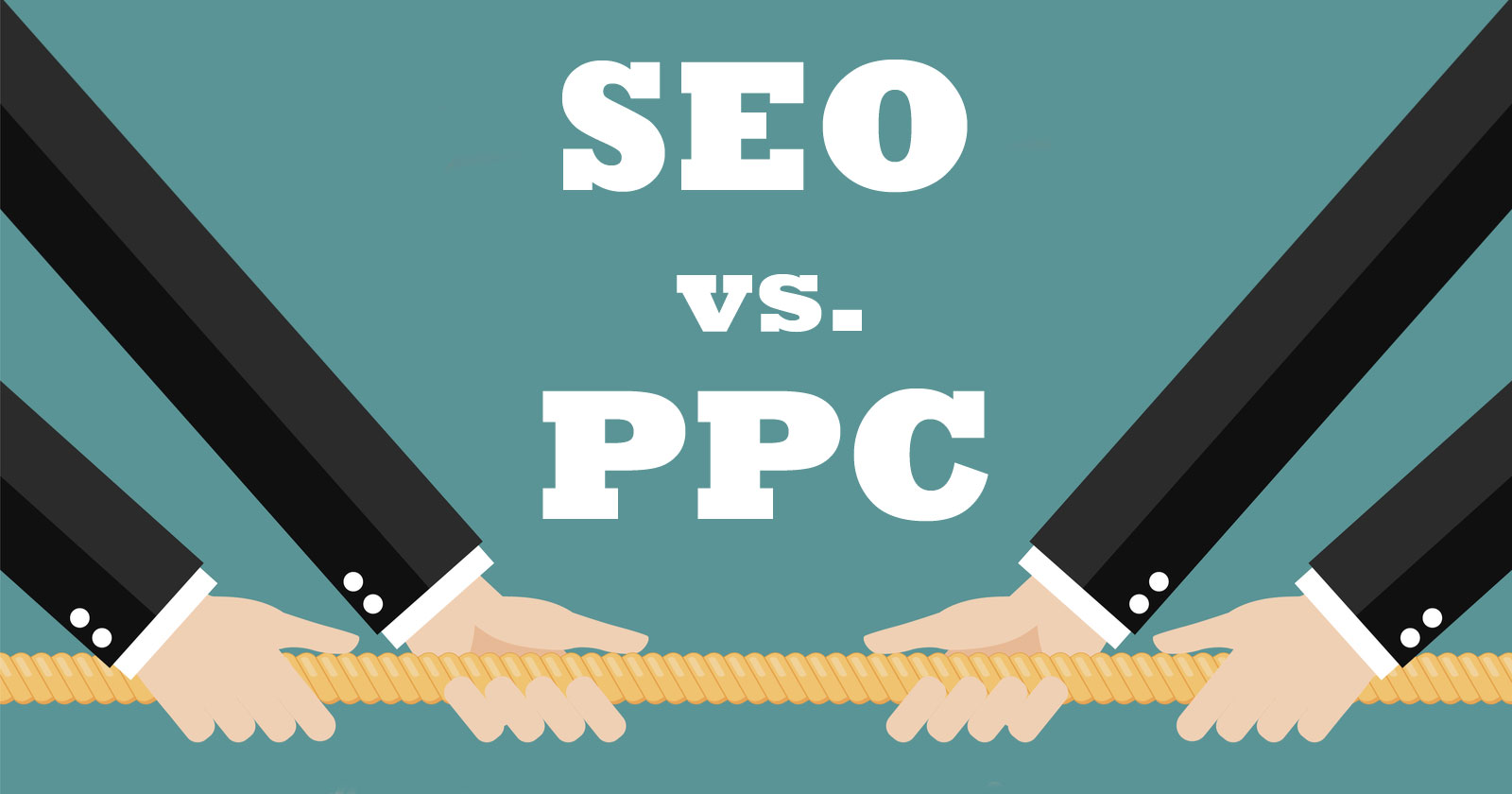For businesses, either lead generation or eCommerce – there is a consistent ongoing debate as to which marketing route is best for business ROI. These routes are SEO and PPC. For businesses, they may have heard success and horror stories from other companies regarding the two, leading them to ponder which one they should target.
In our latest post, we will weigh up the pros and cons of both SEO and PPC to provide you with an understanding of which channel may prove most beneficial for your business(es) ROIs.
What Is SEO?
The overall goal of SEO (otherwise known as Search Engine Optimisation) is to have your website experience an influx of traffic entering your website. As traffic enters your website, an opportunity will then present itself which can result in you garnering leads or sales depending on if you are lead gen only or eCommerce platform.
SEO is a vital component of any website as it guarantees the health and wellbeing of a website – whilst also presenting you with ways in which you can improve the site as a whole. For instance, if your website is riddled with poorly written content, broken internal and external links and a slow-running website – the likelihood of traffic converting into sales will be substantially less.
Not only will you be able to improve your website with SEO, but you will also be able to set up analytics and review the progress of your website. Reviewing the progress of your website attributes to things such as checking what keywords you are ranking for, what your top landing pages are and how long people are spending on your website altogether. This information is fantastic as it will allow you to strategise ideas in which you can guide traffic to your money pages.
Since Google generates over 7 billion searches every day, new businesses may be scared that they mightn’t get the results needed to be successful – below we will explore the pros & cons of SEO.
The Pros Of SEO
One of the best advantages that SEO will provide is the fact that a large portion of your audience will enter your website organically. Organic traffic is paramount as this means that they have searched for a specific keyword and have found your website – meaning that they are the right target audience for you.
Another advantage is the fact that conducting a successful SEO campaign will cost you no additional funds, except for resources – this we will come back to. However, As you are growing your overall brand with great content, you are strengthening the trust between yourself and your clients/customers. This will garner you long-term, compounding results that you can only build upon.
The Cons Of SEO
As mentioned above, despite SEO essentially being free for the most part – it is extremely resource and time heavy. Especially if you want your efforts to be successful. You need to ensure that you have the right people equipped who not only understand the world of SEO but have a firm idea of your business’s goals and target audience. Failing this, you will be doing SEO blind essentially which will ultimately prove as a wasted allotment of time.
Another downside to SEO is from an authoritative perspective. For instance, if you are a brand new website – you should not expect to rank above a competitor with a 10+ year domain name in a short amount of time. As your website is newly launched, this will take time for search engines to value your efforts and to see the story of your brand. Granted, this does not mean that you will never rank above your competition, as Daniel Foley (one of the top SEOs) said “Rankings are rented”. This means that with a strong campaign, you will eventually be able to overtake your competition, just don’t expect to see substantial results for at least the first 4-6 months.
What Is PPC?
PPC on the other hand refers to pay-per-click. Should you be a frequent “Googler”, you have more often than not seen Google Ad campaigns dominate the top of a page for a specific search. This is because businesses can implement Ad campaigns and essentially pay for a spot within those search terms.
To elaborate further, a pay-per-click campaign can allow your website to be visible for specific searches that you may be struggling to achieve through organic means. This can be vital if that particular search generates a large volume of searches, coupled with the fact it can be fairly difficult to rank for.
PPC can essentially allow you to open the door to be seen for searches that are pivotal in your industry – similar to SEO, we will list the pros and cons below:
The Pros Of PPC
As mentioned above, PPC allows you to see almost immediate results through targeting specific searches which can draw a potentially large volume of traffic to your website. As a result, compared to SEO the work needed is significantly less as you are essentially creating an Ad campaign.
In addition, the data that Google Ads provides is extremely simplistic from a UX perspective. Allowing the ease of creating a campaign to be very fruitful for a business that is marketing itself in a very competitive space.
The Cons Of PPC
Despite allowing you to see immediate rankings for specific keywords that are paramount in your industry – you should expect to spend a fair amount of money to do so. Depending on how competitive your industry is, you can expect the cost per click for your desired keywords to be substantially higher than if you were to turn your efforts to more niche search terms.
Should you opt to tackle the more beneficial keywords in which your competition already has a foothold, you are making it apparent to the competition of your intentions. This can result in them doubling down on their efforts for said search term(s) which will make your organic journey all the more difficult.
Another important factor to note is that people are opting to incorporate Ad blockers into their search engines all the more now. This means that a particular phrase may not garner as many results as it would have previously.
What is the key difference between SEO and PPC?
In regards to the key difference between SEO and PPC, SEO allows you to implement search engine-friendly actions for you to attract visitors in an organic sense. Whereas PPC will grant you immediate rankings as the result of you paying for what you obtain. Both channels can be costly, but for completely different reasons.
In short, Search Engine Optimisation will burn resources and time, in comparison to PPC which will cost you financially.
Which is better for your Business ROI – SEO or PPC?
In regards to which avenue is best for your business ROI, we personally suggest that you try to implement them both into your marketing strategy. Doing so will allow you to conduct SEO actions that will benefit your website and as a result, you will be able to obtain a more successful PPC campaign in the process.
However, it is important to understand the differences that we have highlighted above should you only care to implement one or the other – although it is wise to attempt both.
Conclusion
Both SEO and PPC serve as fantastic marketing methods that will see a tremendous rise in traffic and sales for your business(es) Return On Investment. We imagine that the debate between SEO vs PPC will long continue.
If you are interested in starting either or both campaigns and are unsure where to start, speak to a professional digital marketing agency to get started. At Weignyte, we specialise in both aspects of marketing and we will be happy to share more of our thoughts. Alternatively, take a look at our other blogs and services that we have available.




